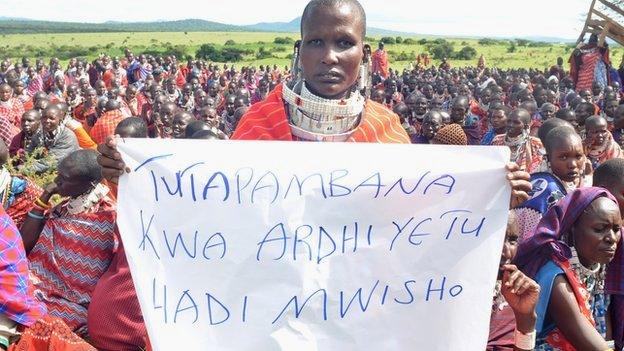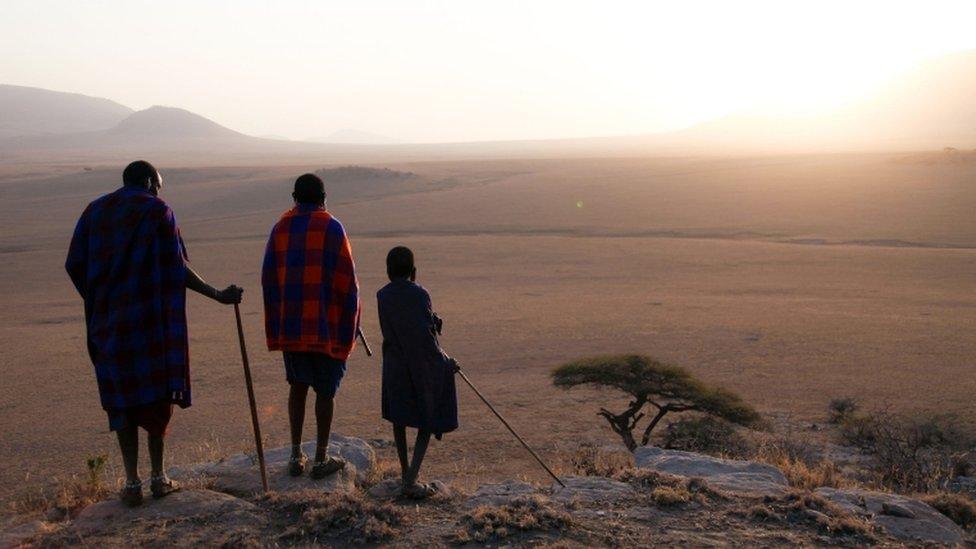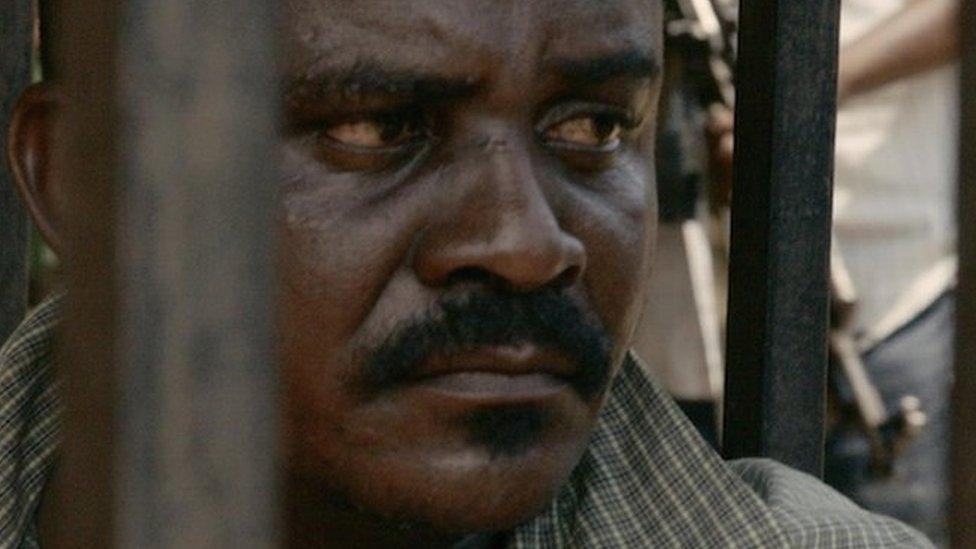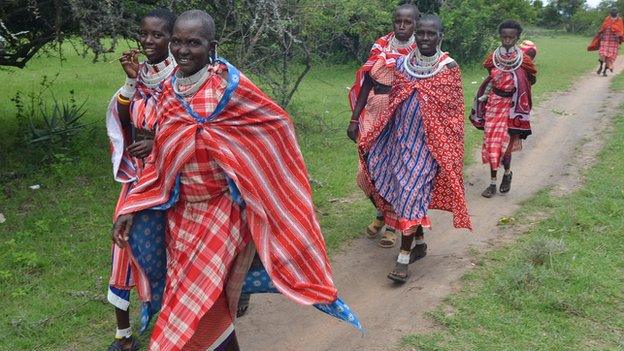Maasai displaced after huts burned in Tanzania
- Published

"We will fight for our land until the end" reads a sign by a Maasai woman in 2013
More than 100 Maasai huts in Tanzania have been allegedly burned down by game reserve authorities near the Serengeti National Park.
Hundreds of people have reportedly been left homeless by the evacuation of local pastoral communities.
One young Maasai is said to have been shot and critically injured.
It is part of a longstanding border dispute between local Maasai people and authorities who operate exclusive hunting experiences for tourists.
The Tanzanian government had plans to establish a 1,500sq km (579sq mile) wildlife corridor around the national park for a Dubai-based company which offers hunting packages for wealthy tourists from the UAE.
The plan would have displaced about 30,000 people, and caused ecological problems for the Maasai community, which depends on the seasonal grasses there to rear livestock.

The Maasai have been involved in a land dispute in the Serengeti area for decades
But the country's president tweeted in 2014, external that an eviction would not take place, after more than two million people signed a petition, external against the action.
Allow X content?
This article contains content provided by X. We ask for your permission before anything is loaded, as they may be using cookies and other technologies. You may want to read X’s cookie policy, external and privacy policy, external before accepting. To view this content choose ‘accept and continue’.
However reported incidents, external of destruction of Maasai sites persisted.
The chairman of Ololosokwani village, Kerry Dukunyi, has told the BBC that villagers have lost property in the latest incident.
"A large percentage of our food has been destroyed. We've lost a lot of food," he said.
"A lot of our livestock are also missing."
It's the latest example in East Africa of the growing tensions between wildlife conservation, which attracts tourists, and the need for locals to have pastoral land, especially during droughts.
Earlier this year, Prime Minister Kassim Majaliwa formed a commission, external to investigate the dispute but its report is yet to be made public.
- Published3 March 2017

- Published18 April 2013
